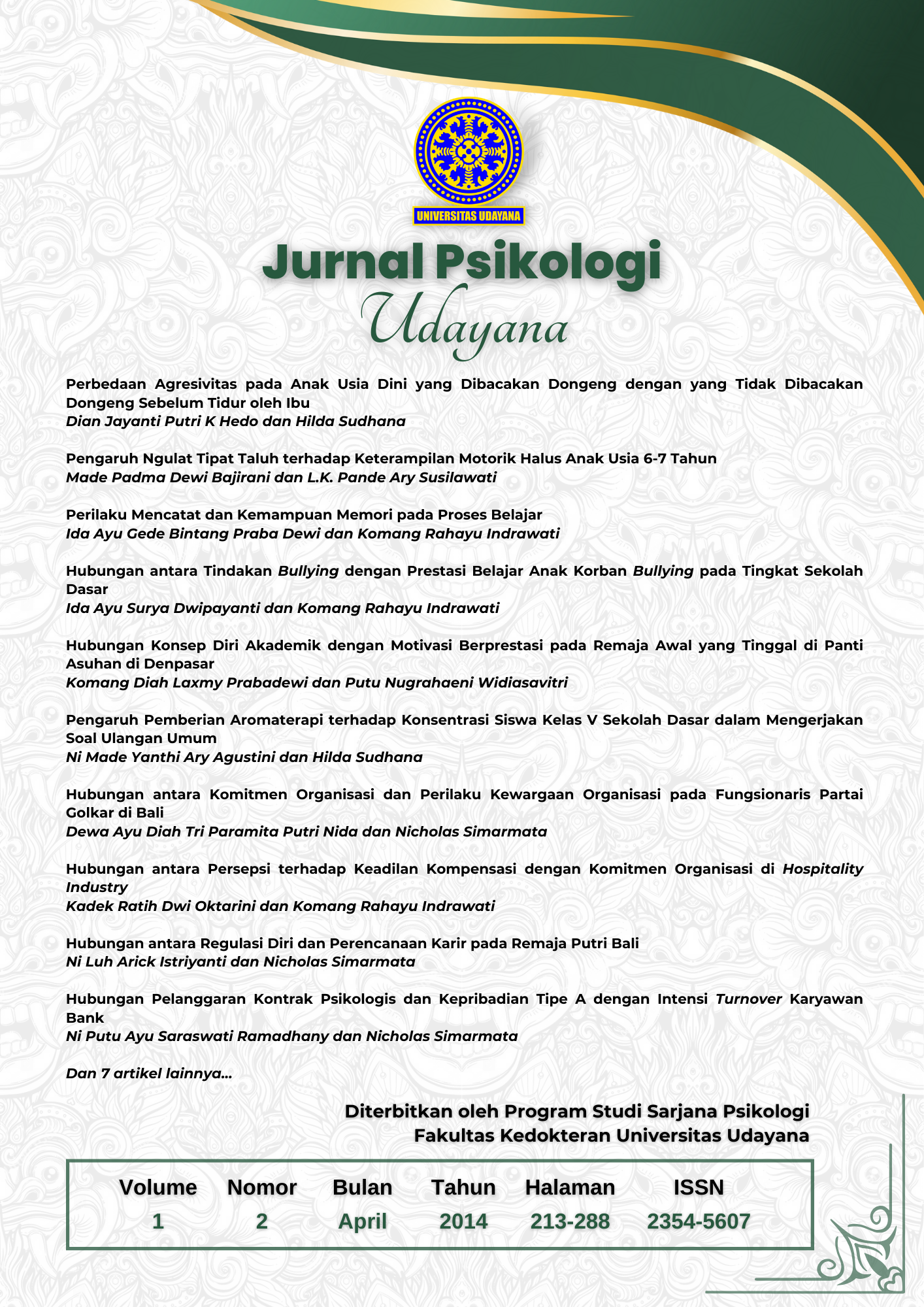Hubungan Antara Komitmen Organisasi dan Perilaku Kewargaan Organisasi pada Fungsionaris Partai Golkar di Bali
Abstract
A phenomenon called "Job Hopping" political elites facing the elections affects the instability of the party. This phenomenon is related to the lack of organization commitment and organizational citizenship behavior at the party functionaries. By committing to the organization, the party functionaries are able to identify themselves to the task and purpose and loyal to the organization. It then makes functionaries to demonstrate Organizational Citizenship behavior.
This study is aimed at determining the relationship between organizational commitment and Organizational Citizenship Behavior at Golkar Party functionaries. This research is a quantitative correlation. The subjects are Golkar party functionaries in Bali by 97 people with age criteria to join at least 5 years, between the ages of 25-65 years and a minimum of High School education/ equivalent. Method of collecting samples is the convenience method. Methods of collecting data are the Organizational Commitment Scale with its reliability 0.814 and Organizational Citizenship Behavior Scale with its reliability 0.791. Normality of commitment organizational variable is 1.127 and Organizational Citizenship Behavior variable is 0.878. Linearity of organizational commitment variable and Organizational Citizenship Behavior variable are 0.000. Data analysis method is by using techniques of the Pearson product moment correlation. The result shows that there is a significant positive relationship between organizational commitment and Organizational Citizenship Behavior on Golkar party functionaries in Bali with 0.529 correlation values and probability value 0.000.
Keywords: Organizational Commitment, Organizational Citizenship Behavior, Golkar Party Functionaries
Downloads
Authors who publish with this journal agree to the following terms:
- Authors retain copyright and grant the journal right of first publication with the work simultaneously licensed under a Creative Commons Attribution-ShareAlike 4.0 International License that allows others to share the work with an acknowledgement of the works authorship and initial publication in this journal.
- Authors are able to enter into separate, additional contractual arrangements for the non-exclusive distribution of the journals published version of the work (e.g., post it to an institutional repository or publish it in a book), with an acknowledgement of its initial publication in this journal.
- Authors are permitted and encouraged to post their work online (e.g., in institutional repositories or on their website) prior to and during the submission process, as it can lead to productive exchanges, as well as earlier and greater citation of published work (See The Effect of Open Access).













